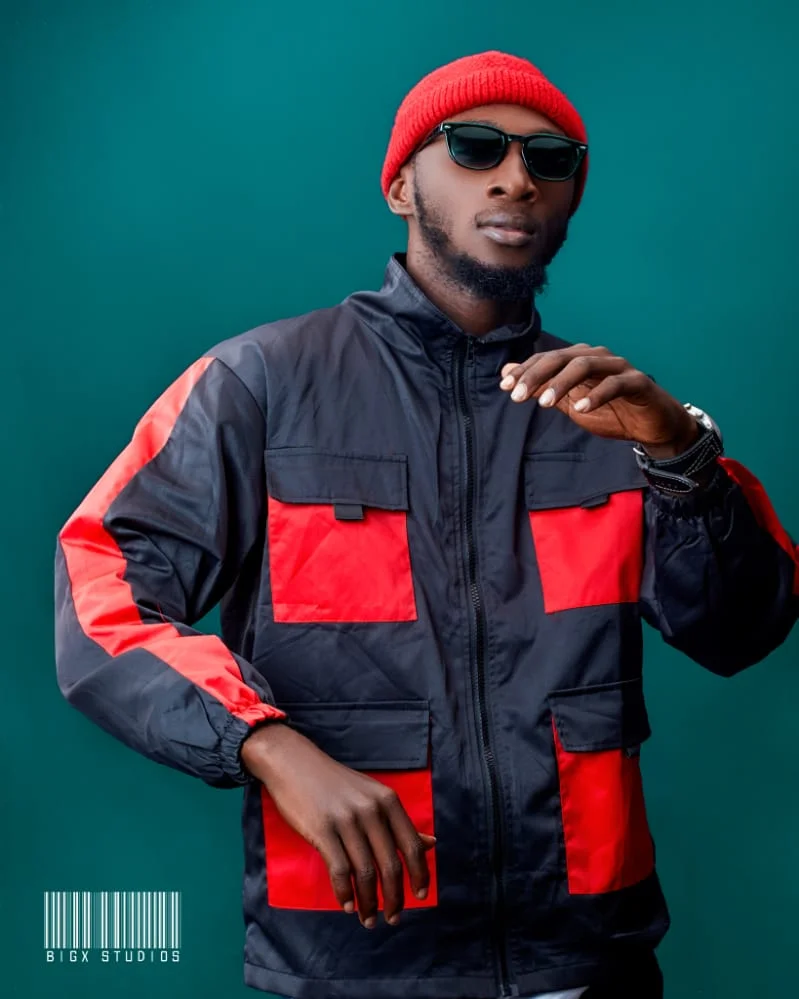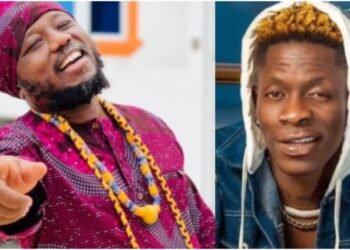The highlife genre of music originated in Ghana in the early 20th century. It blends traditional Akan melodies and rhythms with Western musical elements.
It has played a vital role in the cultural identity of Ghanaians and has significantly influenced various music styles across West Africa.
However, in recent years, there has been a noticeable trend where Nigerian artists are increasingly associated with the Highlife genre of music, leading to discussions about cultural ownership, identity, and the dynamics of music in the West African region.
Ghanaian musician, Ben Brainy has sparked an important conversation about Ghana’s music industry.
Addressing a growing concern, Ben Brainy pointed out that Ghanaians do not hold onto their cultural and musical heritage long enough, which has allowed Nigerians to dominate and claim ownership of Highlife music.
The highlife genre of music, one of Ghana’s most treasured musical genres, has played a crucial role in shaping African music.
Prominent figures in the highlife scene, such as E.T. Mensah, often referred to as the “King of Highlife,” helped elevate the genre’s status locally and internationally. However, Ben Brainy believes Ghana has not done enough to preserve and promote the genre.
According to him, Ghanaian musicians often abandon their traditional sounds in pursuit of newer trends, leaving a gap that Nigerian artists have strategically filled.
By fusing Highlife with Afrobeat, Nigerians have managed to rebrand and commercialize the genre, gaining international recognition while Ghana struggles to maintain its influence.
“We don’t hold onto our own for long. We started Highlife, but now it’s the Nigerians who are making it big with it. We leave what we have and chase other things.”
Ben Brainy
Nigerian artists have made significant contributions to the global music scene, particularly with the rise of Afrobeats, a genre that has roots in Highlife but has developed its own distinct identity.
Artists like Burna Boy, Wizkid, and Davido have not only dominated the charts but have also drawn inspiration from the Highlife genre, incorporating elements of the genre into their music. This blending has led to a perception that Highlife is being appropriated by Nigerian musicians.
The increasing collaboration between Ghanaian and Nigerian artists has further blurred the lines of cultural ownership.
While these collaborations are seen as a celebration of West African unity, they also raise questions about the preservation of cultural heritage.
As Nigerian artists gain international recognition, some Ghanaians feel a sense of loss regarding their own musical heritage.
Ghanaians’ Highlife Genre Cultural Reticence

One of the central themes in the discourse surrounding Highlife is the idea that Ghanaians do not hold onto their cultural assets as firmly as they should.
Ghanaians have historically been open to sharing their musical culture, leading to a rich exchange of ideas. However, this openness is sometimes misconstrued as a lack of ownership.
As Nigerian artists adopt and adapt Highlife elements, it creates a narrative that Highlife is a shared genre rather than a distinctly Ghanaian one.
The media plays a crucial role in shaping perceptions of cultural ownership. When Nigerian artists are highlighted for their contributions to the Highlife genre or when Highlife is labeled as an “African genre” without specific attribution to Ghana, it leads to a dilution of Ghanaian identity in the genre.
The music industry has become increasingly commercialized, with artists often prioritizing global appeal over cultural authenticity.
This shift leads to a focus on trends rather than the preservation of traditional sounds, resulting in a loss of connection to the roots of highlife.
Younger generations of Ghanaians are more influenced by contemporary global music trends, including Afrobeats and hip-hop, leading to a decline in the prominence of the Highlife genre. This generational shift creates a disconnect from the genre’s historical significance and cultural roots.
Path Forward on Highlife Genre Ownership

Initiatives aimed at educating the younger generation about the history and significance of the Highlife genre help foster a sense of pride and ownership. Music programs in schools, workshops, and community events play a vital role in this process.
Encouraging the production and promotion of highlife music by Ghanaian artists helps revitalize the genre. Platforms that showcase local talent and celebrate Highlife’s heritage contribute to its resurgence.
While it is essential to preserve the traditional aspects of highlife, embracing collaboration with artists from other genres leads to innovative fusions that keep the genre relevant. This approach helps maintain Highlife’s identity while allowing it to evolve.
Ben Brainy, however, urged Ghanaian musicians and industry players to be more intentional about preserving and promoting Ghana’s musical identity, rather than allowing foreign influences to overshadow it.
He emphasized that if Ghanaians want to maintain ownership of Highlife, “they must invest in the genre, push it globally, and take pride in their cultural heritage.”
The discussion surrounding the Highlife genre and its cultural ownership is a reflection of broader themes in the global music landscape. While the influence of Nigerian artists on highlife is undeniable, Ghanaians must recognize and reclaim their cultural heritage.
By fostering pride in Highlife and actively promoting its history and significance, Ghanaians ensure that this vibrant genre continues to thrive as a cornerstone of their cultural identity.
The future of Highlife lies not only in its preservation but also in its ability to adapt and resonate with new generations, reinforcing the notion that cultural heritage is a living, evolving entity.























